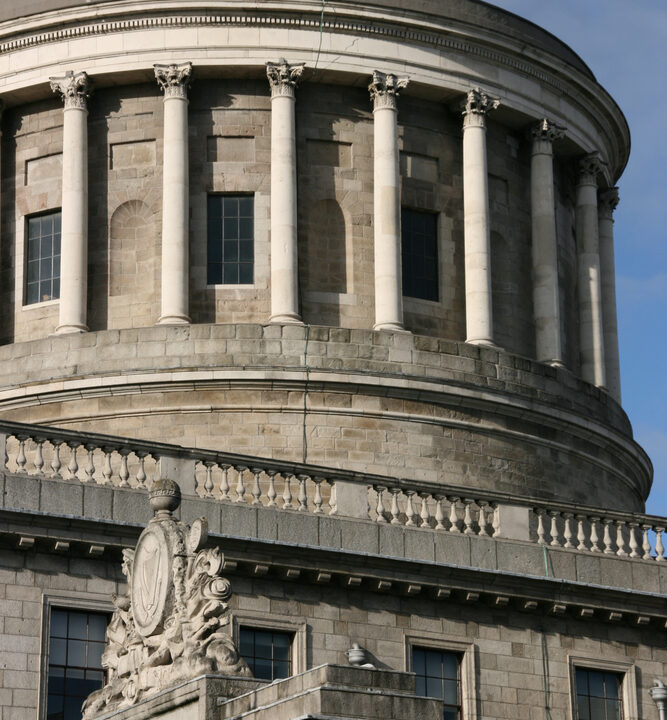The former chief executive of Dairygold has told the High Court that he considered a debt of more than €135,000 he owed to the co-operative an asset to the company rather than a bad debt.
Businessman Jerry Henchy (48) told Mr Justice Daniel Herbert that he had never been contacted by Dairygold’s credit control department over the debt he had run up on his farming account. He said that letters and emails he had received asking him to settle his account were not intended to put him under any pressure.
The father of three from Kilmallock, Co Limerick is suing his former employers for €8m in damages arising from his dismissal for “spurious reasons” to do with alleged financial irregularities with his farm account. He is also suing the co-operative for defamation over articles that appeared in the national and international press subsequently. Dairygold contests all counts.
Henchy told the court that, as CEO, he felt uncomfortable using Dairygold’s agri-business to supply his farm. He said that as a stakeholder in the company he did not feel he could negotiate the best deal for his own business and had been trading elsewhere for his general farming needs.
However, he was approached by chairman John Walsh who told him that it would be advisable for him to start trading with the co-operative, as it “didn’t look good”. Henchy told the court that he had duly moved his business but was still unwilling to receive discounts when they were offered.
He said that although the account had eventually climbed to more than €100,000 he had never considered himself a bad debt. He received an annual salary, including bonuses of approximately €800,000.
Henchy agreed with his counsel Mr Patrick Hanratty SC that he had received two emails from Jim Wolfe in June and July 2007. Woulfe at that time was in charge of the agri-business division. Henchy agreed that he was offered a discount of €1,500 if he would clear the balance of his account, which at that time stood at just over €76,000. However he said that he had never felt under any pressure to pay.
At the AGM of the co-operative in December of that year Mr Henchy’s account, which now stood at almost €130,000, was raised for discussion. The following January, Henchy told the court, Vincent Buckley, the then chairman of Dairygold and Michael Harte, the chief financial officer, had decided to remove his account from the system after it became apparent that someone had access to the details.
Henchy told the court that Buckley and Harte told him that they could no longer guarantee his privacy and so had marked the outstanding balance paid. He said that he was subsequently given a separate statement for this amount and that it was no longer included in his monthly account statement.
Separately Henchy told the court that Dairygold had insisted on maintaining full control of the Long Term Incentive (LTI) scheme put in place for the managers of Reox Holdings Plc, a subsidiary company of the cooperative set up to maximise the profits from non-core businesses.
He told Hanratty that the failure to finalise the details of the LTI scheme had almost delayed the de-merger of Dairygold and Reox in May 2007. Henchy said that the members of the remuneration committee, part of the board of Dairygold, were unhappy with the valuation of Reox’s property portfolio by advisors Hamilton Osborne King. He said the board members thought he had unfairly influenced the HOK evaluation and insisted on increasing the projected value of the portfolio by 25 per cent. He told the court: “There was an awful lot of belief that the property market would just continue to go upwards…There was no consideration given to the fact that we were in a bubble.”
He said that even after Reox was established as a separate plc company, Dairygold insisted on controlling the terms of the LTI scheme for Reox management. When Reox management commissioned a report into the viability of the scheme, which came back advocating multiple changes, Dairygold members of the Reox board ruled out examining the matter further.
The case continues in the Four Courts in Dublin tomorrow.
By Abigail Rieley
